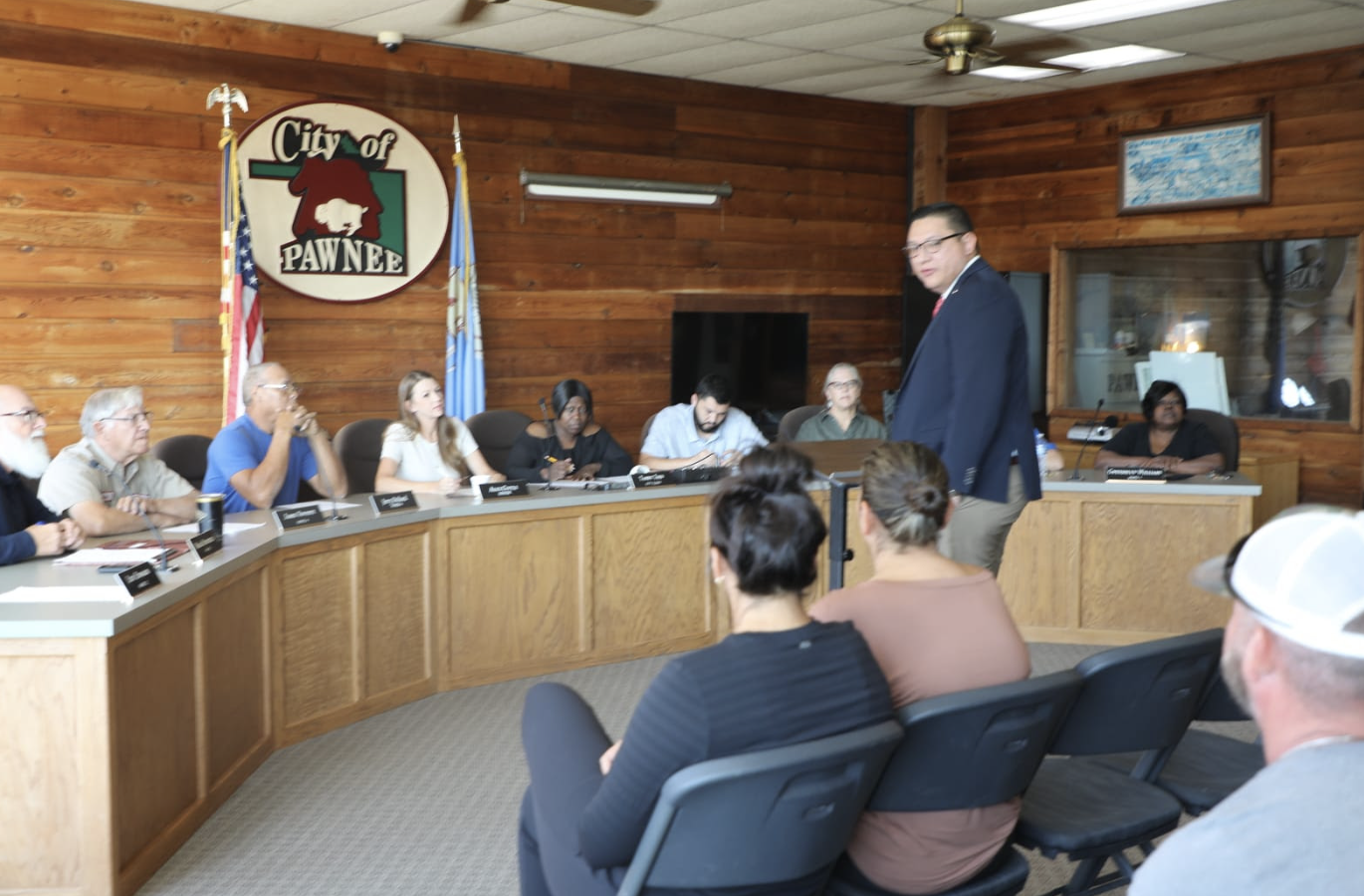
- Details
- By Oklahoma Native Magazine
PAWNEE RESERWVE, Okla. - Pawnee Mayor Cottle and other City officials held a Special Meeting at 10:00 a.m. at City Hall (located at 510 Illinois) to deliberate possible action to rename main street (currently Harrison Street) as Pawnee Nation Street.
While other items were on the Special Meeting Agenda, the discussion of the possibility of honoring the Pawnee Nation with a permanent street took priority as Pawnee Business Council (PBC) presented the graceful, official request to rename main street after Pawnee Nation.
City officials reserved the right to gather information about the potential of “red tape” around the process of “the renaming”. Joyce Cheatham (Ward 5) researched the history of Harrison Street before agreeing to the name change and commented that she saw “no problem” proceeding with the change.
Police Chief Wesley Clymer was present at the meeting along with County Assessor, Melissa Waters. The Emergency Services personnel pointed out that the renaming would NOT have adverse effects on their services.
To give some timeline of the history of nomenclature, the city itself has long time shouldered the name of the Pawnee Tribe (relocated from Nebraska to Oklahoma between 1873 and 1875).
The Post Office was redesignated from Pawnee Agency to Pawnee in 1893. The city was incorporated in April 1894. According to the public Pawnee County Historical Museum Day Proclamation, “a small group of concerned Pawnee citizens met for the first time, September 28, 1978 (https://www.pawneechs.org/
The next meeting date for City Council can be found HERE, in which further discussion and possible action will take place on behalf of the Pawnee Nation’s request. Mayor Cottle did not give a statement after the meeting.
Help us defend tribal sovereignty.
At Native News Online, our mission is rooted in telling the stories that strengthen sovereignty and uplift Indigenous voices — not just at year’s end, but every single day.
Because of your generosity last year, we were able to keep our reporters on the ground in tribal communities, at national gatherings and in the halls of Congress — covering the issues that matter most to Indian Country: sovereignty, culture, education, health and economic opportunity.
That support sustained us through a tough year in 2025. Now, as we look to the year ahead, we need your help right now to ensure warrior journalism remains strong — reporting that defends tribal sovereignty, amplifies Native truth, and holds power accountable.
 The stakes couldn't be higher. Your support keeps Native voices heard, Native stories told and Native sovereignty defended.
The stakes couldn't be higher. Your support keeps Native voices heard, Native stories told and Native sovereignty defended.
Stand with Warrior Journalism today.
Levi Rickert (Potawatomi), Editor & Publisher

